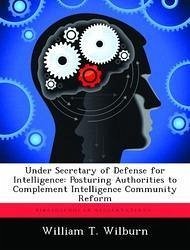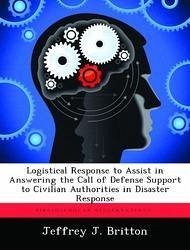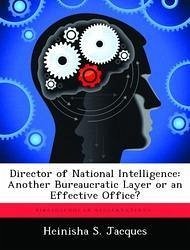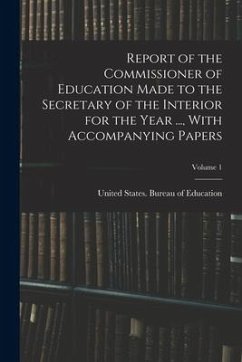Nicht lieferbar

Under Secretary of Defense for Intelligence: Posturing Authorities to Complement Intelligence Community Reform
Versandkostenfrei!
Nicht lieferbar
In the aftermath of the 9/11 terrorist attacks, policymakers and the American public demanded to know the causes that led to its nation's intelligence failures. The 9-11 Commission, along with the temporarily constituted Joint Intelligence Committees of the U.S. House and Senate, recommended a new head of national intelligence, with greater powers than its predecessor, the Director of Central Intelligence. Simultaneously, Secretary of Defense Donald Rumsfeld successfully lobbied Congress to establish the Under Secretary of Defense for Intelligence USD(I), a new position intended to address chr...
In the aftermath of the 9/11 terrorist attacks, policymakers and the American public demanded to know the causes that led to its nation's intelligence failures. The 9-11 Commission, along with the temporarily constituted Joint Intelligence Committees of the U.S. House and Senate, recommended a new head of national intelligence, with greater powers than its predecessor, the Director of Central Intelligence. Simultaneously, Secretary of Defense Donald Rumsfeld successfully lobbied Congress to establish the Under Secretary of Defense for Intelligence USD(I), a new position intended to address chronic problems confronting the defense intelligence. In 2004, Congress passed the Intelligence Reform and Terrorism Prevention Act (IRTPA), which established the Director of National Intelligence (DNI). IRTPA presented a number of challenges in terms of defining the USD(I)'s roles. In particular, the statutory authorities of the newly created DNI directly challenged the USD(I)'s ability to define its roles and clearly interfered with USD(I)'s momentum to expand its intelligence responsibilities. The purpose of this study was to determine the appropriate role of the USD(I) and examine the extent to which the USD(I)'s authorities should be scoped to ensure proper coexistence with the DNI and IC. This study discovered that USD(I) redundancies, overlaps, and conflicts ranging from less dangerous infractions like HUMINT to the more severe conflicts pertaining to distribution of national intelligence resources, compromise IC synergy and have the potential to negatively impact national security. This work has been selected by scholars as being culturally important, and is part of the knowledge base of civilization as we know it. This work was reproduced from the original artifact, and remains as true to the original work as possible. Therefore, you will see the original copyright references, library stamps (as most of these works have been housed in our most important libraries around the world), and other notations in the work. This work is in the public domain in the United States of America, and possibly other nations. Within the United States, you may freely copy and distribute this work, as no entity (individual or corporate) has a copyright on the body of the work. As a reproduction of a historical artifact, this work may contain missing or blurred pages, poor pictures, errant marks, etc. Scholars believe, and we concur, that this work is important enough to be preserved, reproduced, and made generally available to the public. We appreciate your support of the preservation process, and thank you for being an important part of keeping this knowledge alive and relevant.












